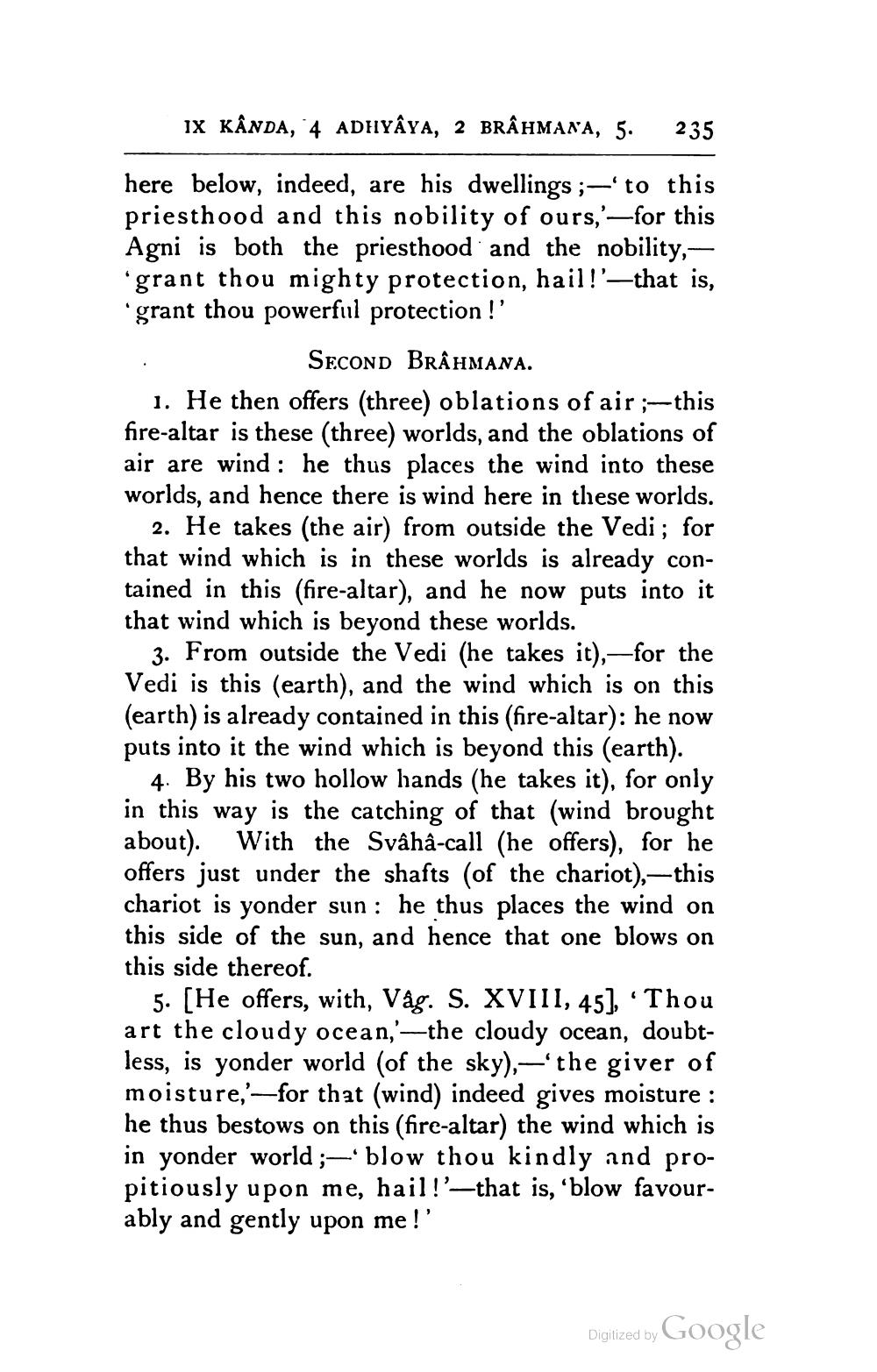________________
IX KÂNDA, 4 ADHYAYA, 2 BRÂHMANA, 5.
235
here below, indeed, are his dwellings ;-'to this priesthood and this nobility of ours,'—for this Agni is both the priesthood and the nobility,'grant thou mighty protection, hail!'—that is, 'grant thou powerful protection !'
SECOND BRÂHMANA. 1. He then offers (three) oblations of air ;-this fire-altar is these (three) worlds, and the oblations of air are wind : he thus places the wind into these worlds, and hence there is wind here in these worlds.
2. He takes (the air) from outside the Vedi; for that wind which is in these worlds is already contained in this (fire-altar), and he now puts into it that wind which is beyond these worlds.
3. From outside the Vedi (he takes it),—for the Vedi is this (earth), and the wind which is on this (earth) is already contained in this (fire-altar): he now puts into it the wind which is beyond this (earth).
4. By his two hollow hands (he takes it), for only in this way is the catching of that (wind brought about). With the Svâhâ-call (he offers), for he offers just under the shafts (of the chariot),—this chariot is yonder sun: he thus places the wind on this side of the sun, and hence that one blows on this side thereof.
5. (He offers, with, Våg. S. XVIII, 45), 'Thou art the cloudy ocean,'—the cloudy ocean, doubtless, is yonder world (of the sky),—'the giver of moisture,'—for that (wind) indeed gives moisture : he thus bestows on this (fire-altar) the wind which is in yonder world ;—' blow thou kindly and propitiously upon me, hail!'--that is, 'blow favourably and gently upon me!'
Digitized by Google




